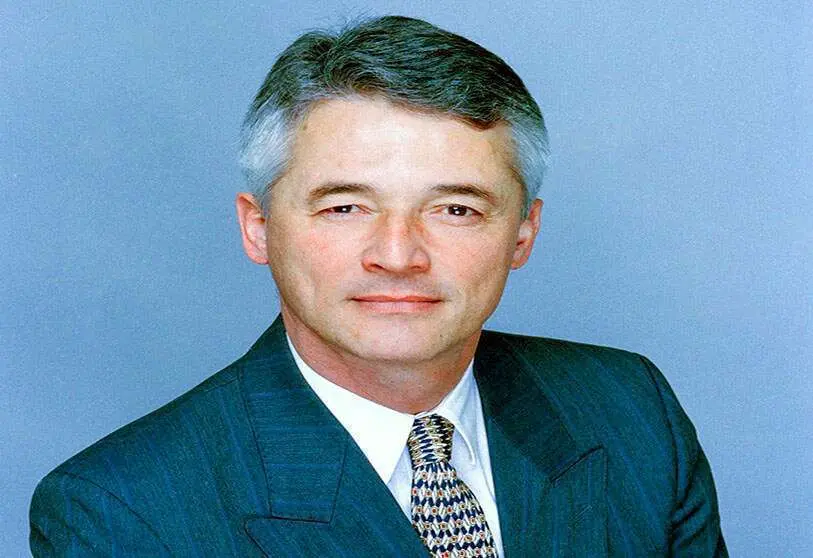Sergio in Baghdad's powder keg

The peacemaker who was buried under the bombs has two films already. The Netflix platform has released Sergio, the feature film that dramatises his career as a United Nations diplomat, as High Commissioner for Human Rights, by Sergio Vieira de Melo (Rio de Janeiro, 1948 - Baghdad, 2003), who became a martyr after his death in a truck bombing on August 19 while working at the organisation's headquarters in the Canal Hotel in the Iraqi capital. This new film is a treasure trove for geopolitical and international relations analysts, somewhat orphaned by more audiovisual projects that allow a better understanding of the modern world and its reckless movements.
The film moves in a double sense: the professional tasks of Vieira de Melo in the different destinations where he was sent, to those more complicated, and his romance with Carolina Larriera, the young Argentinean UN employee who conquered his heart already in his fifties. Netflix's film does not lack a critical aspect in the human sense: how can a man forget about his own children, even about his appointments with the allergist, when he finds himself involved in his work, no matter how important it is for the evolution of conflicts in the world.

Greg Barker, Sergio's director, once again tackles the figure of the well-remembered politician, this time from a dramatic and non-documentary point of view like the other Sergio of 2009 who delved into facts rather than emotions. Wagner Moura, one of the most important actors of the 21st century and from Latin America, steps out of the shoes of Pablo Escobar (Narcos) to give life to a diplomat dedicated to resolving bitter confrontations between nations and territories. A character actress, Ana de Armas, who is missing in those premieres which do not include her in the billboard due to her hyperactivity, responds with solvency and is beginning to convince some of us that she can become a fine dramatic actress if she does not damage her choices in the future. The film is one of those textbook examples of how the most outstanding productions currently reaching the public through the new platforms question the classic dogma that cinema should always be seen in cinema.
Through several turns in time, Barker narrates with subtle imagery the inner process of the Brazilian diplomat during the most decisive stages of his pacification work in Iraq during the second Gulf War, in East Timor and in Cambodia. His thoughts emerge when the character becomes aware of the transcendence of what he is doing, and the need to return to his origins: "I want to fall from the sky like rain and remain forever in the place where I belong".
Sergio tiptoes through the global controversies provoked by the military intervention in Iraq, with the coalition led by the United States and those stormy Security Councils in which Colin Powell questioned the validity of the UN's "international legality", with its erroneous data on Saddam Hussein's weapons of mass destruction. During his short and ephemeral work in Baghdad, where he didn't have time for many achievements, Melo distanced himself from the way the U.S. military treated the population, and Barker documents this with images of abuses in the streets and in prisons like Abu Graib, in whose suffocating dungeons Sergio has a tense conversation with administrator Paul Bremer (Bradley Whitford), who defends that it is about putting resistance in its place.
He deployed a diplomatic agenda that upset Washington, especially because of his meeting with Ayatollah Al-Sistani and his report to the Security Council on the military's rapes and torture of the Iraqi people. The idealistic naivety of the character was dramatically expressed in the explosion that occurred in the hotel that was the UN headquarters in Baghdad, which kept him buried alive for endless hours in which his life as a diplomat is remembered, an explosion that came after Vieira de Melo himself requested that the American army stop protecting the building from the terrorists he was trying to approach to get them to stop their activities, like Abu Musab al Zarqawi.

Sergio was also an administrator in East Timor due to the conflict in Indonesia, and had tense, well-staged jungle meetings with rebel leader Xanana Gusmao to secure a transitional government, a UN mission under the name of UNTAET. The mediation with Abdurrahman Wahid, known as Gus Dur, marks Melo's true measure against an Indonesian president who massacred his population for decades. And in Cambodia, in the UNTAC peace mission, he was captured by Ieng Sary, the leader of the Khmer Rouge whom he knew from the years when both studied and lived nearby at the Sorbonne in May 1968.
Sergio Vieira de Melo is a myth of world diplomacy and a symbol for any attempt at peace in any part of the world where there is a bloodbath. But he could not avoid succumbing to a temptation that has been all too common since the beginning of the current century in the institution he represented: equidistance between players in conflict, even if one of the two sides uses violence and crime. No one suspected of being his enemy, his assistant Gil Loescher, tells him the following in a moment of dialogue in the film that praises his figure: "War Criminals: My Friends". This is the title that Loescher would have given to Vieira de Melo's biography, clearly exaggerated and unfair.

